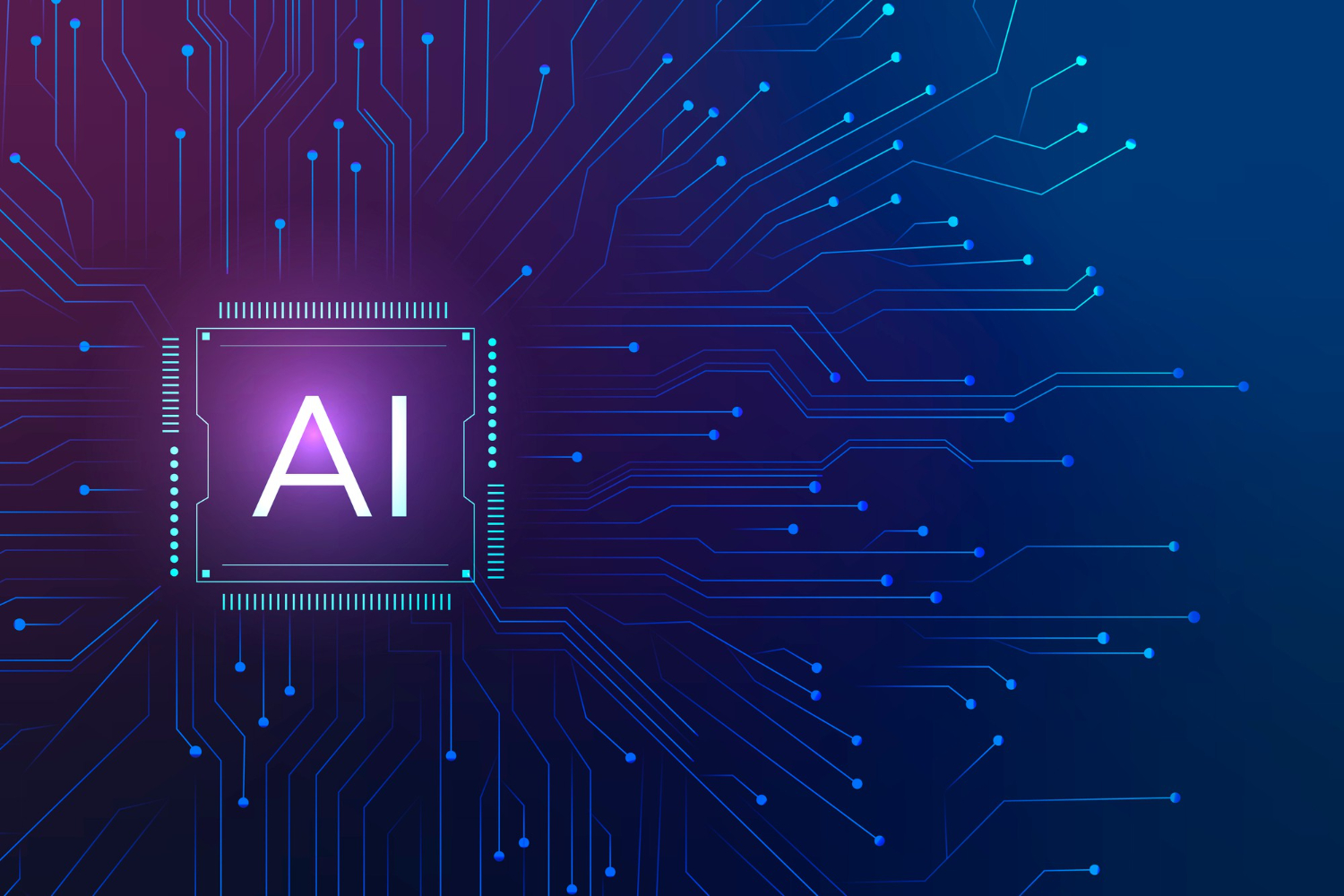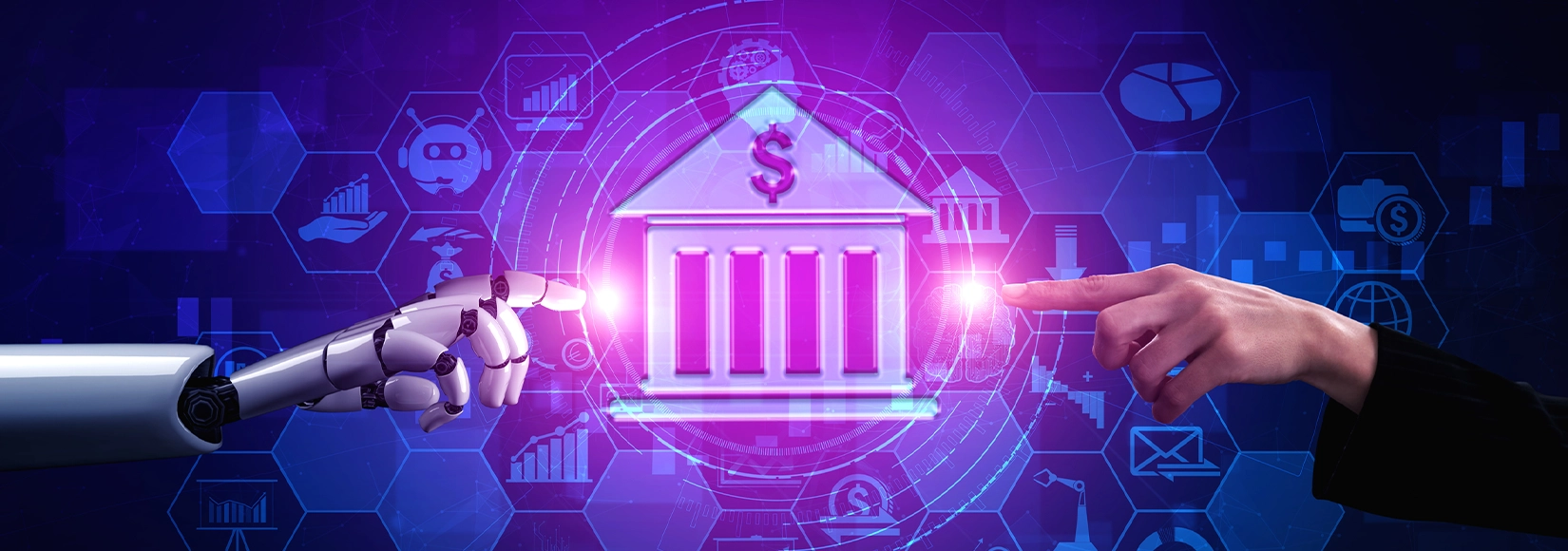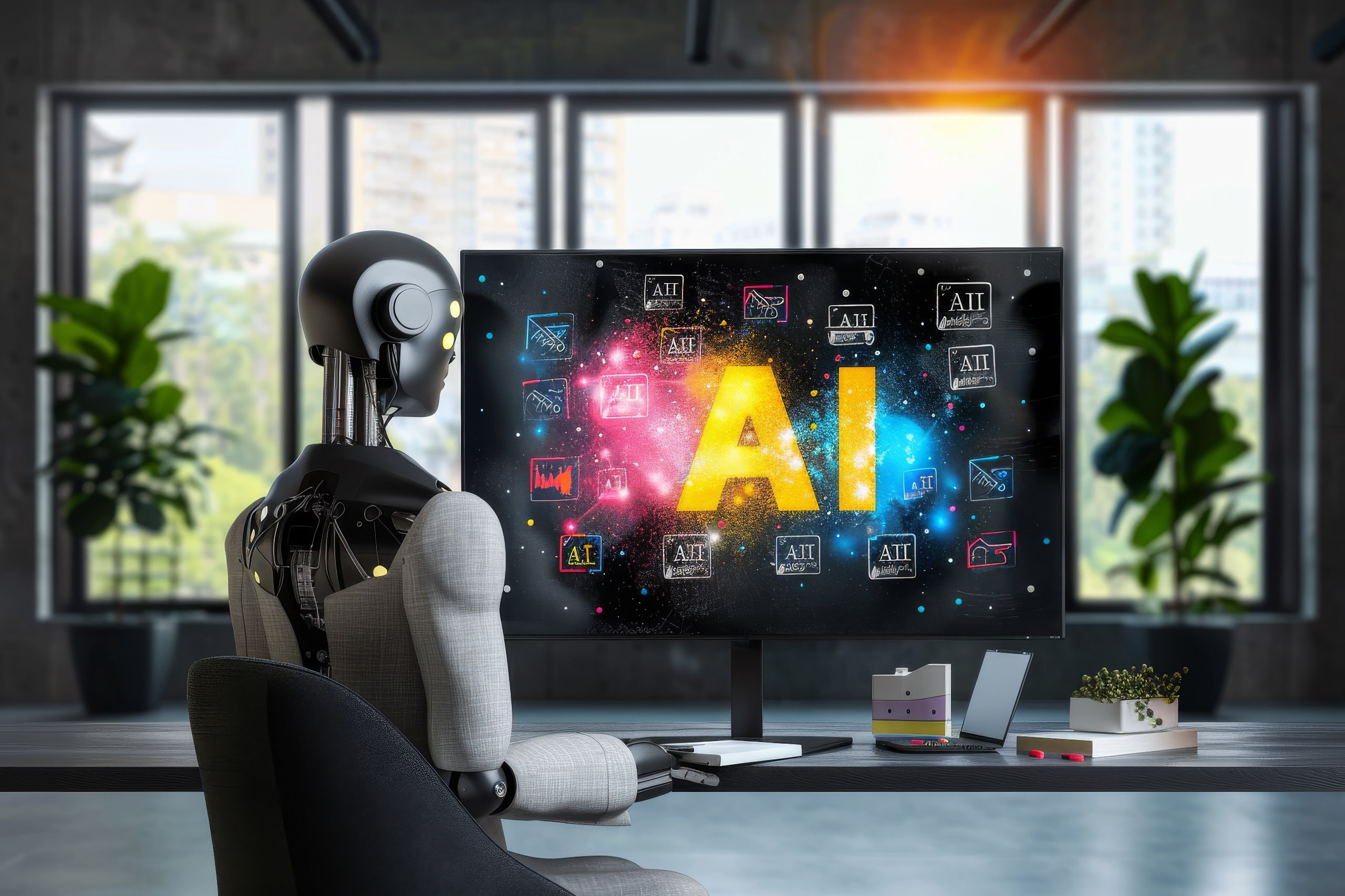Artificial Intelligence revolutionizes the way humans interact with technology. With swift and smooth advancements coming up, the integration of AI algorithms into existing systems is streamlining operations in various sectors, including healthcare, education, manufacturing, transportation, supply chain, etc. AI is meant to enhance the experience of its customers. When we talk about customer experience, hospitality is one branch that comes to our minds. So, in this blog, we will unfold the concepts of using AI in Hotel Management or the Hospitality Industry, digging into how AI steamline hotel operations and helps them provide personalized services to their guests.
Why AI is Needed for Hotel Management?
In the post-pandemic era, where COVID-19 has consequently driven the wanderlust in people and where traveling reels is a trend, the competition in the hospitality industry has increased significantly. This has put immense pressure on hotel and resort owners to stand out of the crowd, reach out to their potential customers, and boost their marketing strategies. Therefore, to solve this issue, technological advancements like artificial intelligence are widely being adopted to match the requirements of society and elevate their guest experience.
IT professionals worldwide consider AI a game changer due to its groundbreaking ability to make predictions, recommendations, and actionable insights by identifying data patterns and learning from the past. By machine learning algorithms, machines, and software today can take over most human tasks, automate them, reduce costs, and increase efficiency. Apart from this, in this data-driven world, where data gets generated rapidly on the internet, AI helps the hospitality businesses to make use of related data like customer’s search history, feedback, interactions with the hotels, competitive analysis, etc. to develop business strategies to boost sales and work on their areas of improvement to enhance their quality of service.
Up next, let’s dive into how AI in hotel management has transformed traditional operations.
How Can AI be Used for Hotel Management?
AI helps streamline hotel operations through automation and provides a personalized experience to the customers, thereby providing them with a hassle-free experience and a pleasant stay at your hotel. Automation reduces stress for management and helps them function efficiently. It saves their time so they can focus more on tasks that are strategic and require human attention, like deciding on deals to boost your hotel sales or expanding the hotel premises, etc. Let’s discuss how the integration of AI in hotel management affects hotel operations and customer experience.
Personalized Customer Service
Whether online or offline, artificial intelligence in hotel management can provide personalized customer services through chatbots or voice assistants. For the customers staying in the hotel premises, it can help with the hotel details, make their trip itinerary for exploring the new place, recommend some great restaurants around them, and guide them about the hotel’s special services. It can convey their requests for room services without the need for hotel staff intervention. As we move forward to more advancements in the field of AI, we can also expect robots to take over most of the customer service operations and provide special attention to every customer, making their stay easy and comfortable.
Chatbots and Virtual Assistant
Integrating AI into your hotel’s website or application can provide a smooth experience to anyone landing on your hotel’s webpage for explorations or bookings. The virtual assistant visually walks the person through your hotel rooms, tariff plans, discount packages, and other services like meals included, swimming pool, spa, and cab services. AI can also talk to the person about what they are looking for and automate the recommendations according to their requirements. Moreover, AI can provide strategic discounts to the person for lead conversion.
Apart from this, AI can be used as chatbot translators and virtual translators to conversate easily with tourists of different cultures and languages, providing them with a warm welcome to the new place.
Data Analysis
In a data-driven world where huge amounts of data are available, it is not possible for hotel faculty to analyze such large amounts of data and draw insights. On the contrary, artificial intelligence has the groundbreaking capability of processing huge amounts of data, recognizing the underlying patterns, and building insights in the forms of charts and graphs. This property of AI has a lot of value in various industries, including hotel management. AI-produced data-driven insights can help the hotel managers and the sales team in making crucial decisions like making strategies to boost business, identifying areas of improvement, and forming policies to tackle them.
AI Sentiment Analysis
Sentiment analysis via AI refers to understanding the emotion and tone behind the text. In hotel management, sentiment analysis can help understand the sentiment of people about your hotel via their feedback, and reviews posted online. This feature keeps track of all the conversations about your hotel and acknowledges the customer’s remarks, be they positive or negative. All this can help the authorities to turn the reviews into actions and make decisions that enhance customer satisfaction and, hence improve the quality of service of your hospitality business.
Dynamic Pricing
Prices of the room tariff must be optimized considering the demand and fluctuations in the market. To help with this, AI algorithms process large amounts of data relating to the occupancy, trends, and demands in the local society, and it even considers the web history, social media, and past data of users. Using these observations, AI auto-sets the room prices of your hotel, neither too cheap nor too expensive, just at the optimal rate at the particular moment. This ensures that your hotel will always be active and responsive to the ongoing flow of the crowd and will always take advantage of all guests due to pricing.
Smart Revenue Management
Revenue management is one of the most effective areas in AI for the hospitality industry, affecting various factors like customer satisfaction, the success of the hotel, etc. AI-powered data and analytics help in revenue management through hyperdynamic pricing, marketing analysis, competitive analysis, smart event diagramming, predicting utility usage, etc. It also helps in targeting specific customer groups with recommendations tailored to their preferences. Thus, AI in revenue management enables hotels to enhance their brand value by simultaneously offering a great deal to the customers and remaining competitive in the market.
Customer Loyalty Programs
AI can keep records of customers individually; for example, keep the data of all the staycations of customers at your hotel, frequency, duration, and preferred room packages. According to the records, loyalty points for each customer based on certain criterias on how often they visit you or stay at your hotels can be calculated, and rewards in terms of discounts or coupons would be given to them. This AI-powered mechanism encourages the customers to visit your hotel premises more often and enhances their experience through materialistic rewards and discounts.
Optimizing Utility Usage & Waste Reduction
Hotel businesses undergo a lot of food, energy, and water wastage. AI can help to tackle this problem. Tracking all forms of consumption like food, water, and power and analyzing them with the help of AI would enable the hotels to keep a check on their utilities to avoid such wastage. Moreover, with predictive analysis, AI can also recommend what amount of food items should be bought to meet the requirements of the hotels appropriately or keep check of the maintenance like alerting the hotel management about due service of the hotel’s air conditioners, etc. In addition, AI would help highlight improvement areas like cutting the power off in unoccupied rooms or managing the water amount in the swimming pool. Thus, AI for utility usage and waste reduction would help the hotel function sustainably and reduce costs.
Tailored Recommendations
AI tracks and analyzes individual data of the customer, including past data, search history, social media, etc, and recommends the room tariff’s to them according to their requirements. For instance, if the target customers have other options with lower prices in their search history, the AI will automatically offer them amazing deals or discounted prices on room tariffs to convert the lead. Let’s take another example: if the customer is searching for a king-size room with a bathtub, the hotel’s AI algorithm will automatically detect it and start sending sponsored ads for the best available rooms with bathtubs to the target customer. Thus, these AI-powered tailored to what the customer is seeking help in keeping the conversion rate high and ensuring the success of the company.
Strong Online Reputation
Today, getting good reviews and ratings is very important for hotels and resorts because almost everyone looking forward to staying at your hotel would consider the reviews posted on your hotel’s online pages and check its ratings before booking the rooms. Moreover, there is a high chance that they may not proceed with the bookings if the reviews are not up to the mark. To tackle this, hotels can use AI powered sentimental analysis and NLP, using which they can automatedly process the reviews and requests of the customer and can take action in response to the same. Thus, quick handling of the negative remarks or queries of the customers through automation would leave a positive imprint on customer’s psychology and provide them with a smooth experience.
Therefore, AI has revolutionized the way hotels used to function and has brought a dynamic shift towards technology in all the departments like marketing, management, administration, finance, and so on.
Benefits of Using AI in Hotel Management?
The benefits any hospitality business can yield are the reasons why AI is becoming popular in hotel management and hospitality energy. For greater understanding, let us discuss the key benefits of utilizing artificial intelligence in the hospitality business in detail:
Enhanced Customer Experience
AI software, chatbots, and virtual assistants provide quick solutions to all customer queries tailored to their requirements and preferences. Moreover, data-backed recommendations like tourist spots, traffic predictions, and budget planning can help them in providing specific attention, making their stay at your hotel pleasant and personalized.
Increased Efficiency & Productivity
AI turns the majority of human tasks into automation, like attending to customer requests, reservations, record-keeping, maintenance checks, etc. This reduces human interventions and human errors, simplifies operations, saves time, and, hence, increases productivity and efficiency. With the help of AI, authorities can devote their time to making more concerned decisions related to growth, profit, and expansion.
Cost Savings
One of the best advantages of integrating AI in hotel systems is revenue management and saving costs. By reducing the need for manual intervention, optimizing operations, keeping utility checks on food, water, and power, and predicting maintenance to avoid equipment failures or reduce maintenance expenses, AI widely helps in cost savings and cost cuttings.
Data-Driven Decision Making
AI has an amazing ability to gather large amounts of data and recognize the underlying patterns, produce insights in graphs and charts, and make predictions and recommendations based on the same. These data-driven insights help the hotel managers or marketing managers to make crucial decisions like launching new schemes to boost sales, identifying work areas of improvement, expanding their hotel premises or doing renovations and so on. Thus, the data-driven insights keep the guesswork out of the picture and improve the quality of decisions of hotel management.
Enhanced Security & Safety
AI-powered surveillance cameras or Super-Resolution Imaging can amplify the capability of cameras and help the system detect any unfortunate activity or event like theft, fire-break out, etc. Thus, integrating AI into hotel systems will increase the safety and security of the guests and the hotel staff and help them avoid any mishappenings.
Dynamic Personalization
As AI algorithms study customer data, they forecast customer requirements, preferences, and behavior and pass tailored recommendations to them. Moreover, chatbots and virtual assistants can even help guests with personalized services, amenities, and activities. Therefore, the guests get to experience personalized attention in real-time which enhances their experience at your hotel, increasing their satisfaction and loyalty.
Competitive Advantage
AI helps you to stand out from the competitors and helps in the brand establishment. Through AI-powered tailored marketing approaches, reputation management, revenue management, utility forecasting, enhanced customer services, and hospitality, hotels can have an edge over their competitors and be on the front foot to attract more guests and grow their business domains.
Real-World Examples of Companies Using AI in Hospitality.
There are many top-notch hotel businesses that are already equipped with AI-powered software and tools in order to stand out and provide a blooming experience to their guests. Below given are some of the examples:
Marriott International Hotels
Marriott International is one of the largest hotel chains, spread worldwide, that has incorporated artificial intelligence in various sectors like revenue management to keep check of their hotel expenses and make intelligent business strategies, and automated hyperdynamic pricing to optimize their room tariffs. Apart from this, the premium hotel chain has launched its chatbot, named “ChatBotlr,” that helps guests provide personalized recommendations and quickly answer their queries.
Hilton Hotels & Resorts
Hilton Hotels and Resorts are another supreme hotel chain that leveraged the power of IBM Watson and introduced their robot “Connie”. Connie utilized machine learning and natural language processing (NLP) to interact with guests, tackle customer queries, and give customized recommendations to guests. The more it interacts with customers, the more accurate it becomes. Apart from this, Hilton also has an energy program, “LightStay,” that helps them favor the environment and predicts energy, water, waste usage, and costs.
IHG (InterContinental Hotels Group)
Like Hilton, IHG partnered with IBM to develop their cutting-edge AI platform, “Watson Assistant,” which provides personalized attention to their guests by giving specified recommendations and solving queries. Watson’s assistant also handles the bookings across the IHG portfolio of hotels. This advanced technology leverages NLP combined with data analysis to meet the needs of the esteemed hotel group.
Four Seasons Hotels & Resorts
These are other examples of hotel businesses that make use of AI-backed chatbots called “Reservation chats’ that help the customers through the hotel amenities, services, and packages and help them with bookings and recommendations. This chatbot is accessible through various gateways and channels like websites, mobile applications, etc.
Yotel
This hotel chain has adopted the tech-inclined approach and implemented their AI-backed robots called “Yobots,” which use computer vision and robotic automation to streamline various operations like luggage storage, retrieval, etc. Guests interact with the AI model through screens to manage their luggage and get them stored safely.
Hence, these real-life examples can throw light on how AI has revolutionized the AI industry with its automation, intelligent data analysis, and smart decision-making.
Challenges & Solutions for Integrating AI in Hotels.
To leverage the potential of artificial intelligence in the hospitality industry properly, it is very crucial for hotel managers to develop, integrate, and implement the AI algorithms properly, failing which there would be negligible benefits and high expenses, dissatisfaction, and security breaches of guests. Moreover, the property owners should also consider the existing IT infrastructure in the hotel; otherwise, it can lead to system failures or incompatibility with the developed AI algorithms, wasting a lot of money and resources.
To avoid these consequences, it is important to consult a good IT firm to understand the needs of your hotel and resorts. The management must audit their current IT infrastructure and note down their requirements before developing the AI algorithm that will fill the gaps in current management procedures.
Hoteliers that Don’t Get Advance will be Left Behind.
In the end, it is pertinent to mention that adopting artificial intelligence into hotel operations in today’s world is not a choice but a required decision that you’ll have to make now or in the future, as the increasing demands of guests, high competition, and huge amounts of data has formed a gap in the hotel management that has to be filled by integrating AI into hotel systems. As we move ahead to a fast-paced world, let’s get ready to experience a new world of possibilities that AI is bringing into the hospitality industry.
If you are looking for tailored AI solutions, do contact Build Future AI, the best AI development, integration, and consulting services, and pave your way to technology!
You may email us at business@buildfuture.ai to learn more.




